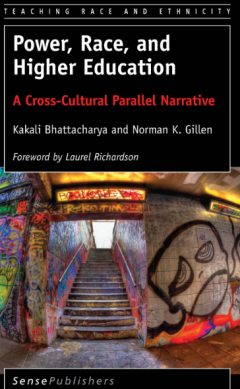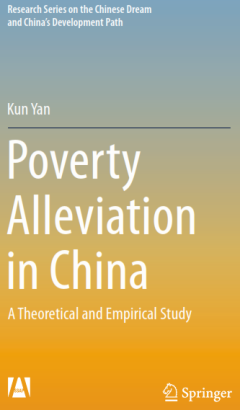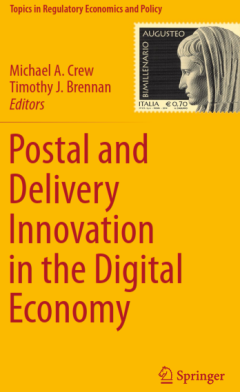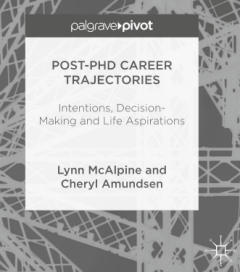Filter by

Power, Race, and Higher Education; A Cross-Cultural Parallel Narrative
Judul "Kekuasaan, Ras, dan Pendidikan Tinggi: Narasi Paralel Lintas Budaya" menunjukkan bahwa karya tersebut mengeksplorasi tema-tema dinamika kekuasaan, ras, dan pendidikan tinggi yang saling berhubungan melalui lensa naratif komparatif atau paralel. Mari kita uraikan apa arti judul ini: (1). Kekuasaan: Komponen judul ini menunjukkan bahwa karya tersebut mengkaji dinamika kekuasaan dalam konte…
- Edition
- -
- ISBN/ISSN
- 978-94-6300-735-1
- Collation
- -
- Series Title
- Teaching Race and Ethnicity
- Call Number
- 378.1 BHA p

Power, Discourse, Ethics; A Policy Study of Academic Freedom
Judul "Power, Discourse, Ethics: A Policy Study of Academic Freedom" menunjukkan bahwa karya tersebut mengeksplorasi interaksi kompleks antara dinamika kekuasaan, wacana, dan pertimbangan etika dalam konteks kebebasan akademik. Mari kita uraikan apa arti judul ini: (1). Kekuasaan: Bagian dari judul ini menunjukkan bahwa karya tersebut mengkaji hubungan kekuasaan dan dinamika dalam lingkungan ak…
- Edition
- -
- ISBN/ISSN
- 978-94-6300-370-4
- Collation
- -
- Series Title
- -
- Call Number
- 378.1

Power and Neoclassical Economics: A Return to Political Economy in the Teachi…
Judul "Power and Neoclassical Economics: A Return to Political Economy in the Teaching of Economics" menunjukkan fokus pada peran dinamika kekuasaan dan pertimbangan ulang ekonomi neoklasik dalam konteks ekonomi politik yang lebih luas. Mari kita uraikan apa arti judul ini: (1). Kekuasaan dalam Ilmu Ekonomi: Ini kemungkinan mengacu pada pemeriksaan struktur kekuasaan dan dinamika dalam sistem e…
- Edition
- -
- ISBN/ISSN
- 978-1-137-55373-7
- Collation
- -
- Series Title
- -
- Call Number
- 330.157 OZA p

Poverty and Well-Being in East Africa; A Multi-faceted Economic Approach
Volume ini adalah kumpulan studi terpilih tentang kemiskinan dan kesejahteraan di Afrika Timur. Sebelas penulis setuju untuk memasukkan makalah mereka ke dalam jilid ini. Studi-studi tersebut dapat dikelompokkan menjadi empat domain: kemiskinan anak dan malnutrisi, dinamika dan faktor penentu kemiskinan, ukuran kemiskinan multidimensi, dan hubungan energi-lingkungan-kemiskinan. Argumen inti unt…
- Edition
- -
- ISBN/ISSN
- 978-3-319-30981-1
- Collation
- -
- Series Title
- Economic Studies in Inequality, Social Exclusion and Well-Being
- Call Number
- 362.5 HES p

Poverty Alleviation in China; A Theoretical and Empirical Study
Sejak reformasi dan pembukaan China dimulai pada tahun 1978, negara ini telah menempuh perjalanan jauh di jalur sosialisme dengan karakteristik China, di bawah kepemimpinan Partai Komunis China. Lebih dari 30 tahun upaya reformasi dan pertumbuhan ekonomi spektakuler yang berkelanjutan telah mengubah China menjadi ekonomi terbesar kedua di dunia dan membuat banyak perubahan besar dalam masyaraka…
- Edition
- -
- ISBN/ISSN
- 978-3-662-47392-4
- Collation
- -
- Series Title
- Research Series on the Chinese Dream and China’s Development Path
- Call Number
- 362.5 YAN p

Postmodern Portfolio Theory; Navigating Abnormal Markets and Investor Behavior
"Teori Portofolio Postmodern: Menavigasi Pasar Abnormal dan Perilaku Investor" tampaknya merupakan buku atau karya akademis yang membahas konsep Teori Portofolio Postmodern dan penerapannya dalam konteks pasar abnormal dan perilaku investor. Teori Portofolio Postmodern adalah kerangka teoritis yang memperluas Teori Portofolio Modern tradisional (MPT) dengan mempertimbangkan faktor-faktor tambah…
- Edition
- -
- ISBN/ISSN
- 978-1-137-54464-3
- Collation
- -
- Series Title
- Quantitative Perspectives on Behavioral Economics and Finance (QPBEF)
- Call Number
- 332.6 CHE p

Postformal Education; A Philosophy for Complex Futures
"Pendidikan postformal" mengacu pada filosofi pendidikan yang melampaui sistem pendidikan tradisional dan formal. Ini adalah konsep yang mengakui perlunya pembelajaran sepanjang hayat dan pengembangan keterampilan di dunia yang selalu berubah dan kompleks. Filosofi pendidikan ini dirancang untuk mempersiapkan individu menghadapi tantangan dan ketidakpastian di masa depan. Berikut adalah beberap…
- Edition
- 3
- ISBN/ISSN
- 978-3-319-29069-0
- Collation
- -
- Series Title
- Critical Studies of Education (CSOE)
- Call Number
- 371.46 GID p

Postal and Delivery Innovation in the Digital Economy
Layanan pos dan pengiriman telah mengalami transformasi dan inovasi yang signifikan dalam menanggapi tantangan dan peluang yang dihadirkan oleh ekonomi digital. Berikut adalah beberapa inovasi dan tren utama di sektor pos dan pengiriman dalam konteks ekonomi digital: (1). Integrasi E-commerce: Munculnya e-commerce berdampak besar pada layanan pos dan pengiriman. Layanan ini harus beradaptasi un…
- Edition
- 50
- ISBN/ISSN
- 978-3-319-12874-0
- Collation
- -
- Series Title
- Topics in Regulatory Economics and Policy (TREP)
- Call Number
- 381.142 CRE p

Post-admission Language Assessment of University Students
Buku ini merupakan hasil dari dua acara konferensi yang saya selenggarakan pada tahun 2013 dan 2014. Yang pertama adalah simposium di Kolokium Penelitian Pengujian Bahasa di Seoul, Korea Selatan, pada bulan Juli 2013 dengan judul "Menjelajahi potensi diagnostik penilaian bahasa pasca-penerimaan di universitas-universitas berbahasa Inggris". Acara lainnya adalah kolokium yang berjudul "Menjelaja…
- Edition
- 6
- ISBN/ISSN
- 978-3-319-39192-2
- Collation
- -
- Series Title
- English Language Education (ELED)
- Call Number
- 371.262 REA p

Post-PhD Career Trajectories; Intentions, Decision-Making and Life Aspirations
Buku "Lintasan Karier Pasca-Doktoral; Niat, Pengambilan Keputusan, dan Aspirasi Hidup" tampaknya berfokus pada jalur karier dan pilihan hidup individu setelah menyelesaikan studi doktoralnya. Topik ini relevan bagi lulusan PhD yang sedang menavigasi perjalanan karir pasca sarjana mereka dan bagi mereka yang tertarik untuk memahami faktor-faktor yang memengaruhi keputusan karir setelah mendapatk…
- Edition
- -
- ISBN/ISSN
- 978-1-137-57660-6
- Collation
- -
- Series Title
- -
- Call Number
- 370.113 MCA p
 Computer Science, Information & General Works
Computer Science, Information & General Works  Philosophy & Psychology
Philosophy & Psychology  Religion
Religion  Social Sciences
Social Sciences  Language
Language  Pure Science
Pure Science  Applied Sciences
Applied Sciences  Art & Recreation
Art & Recreation  Literature
Literature  History & Geography
History & Geography